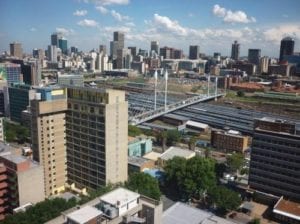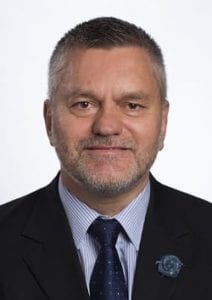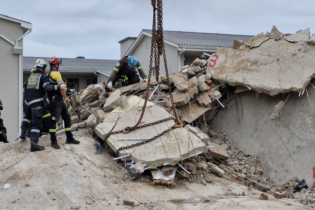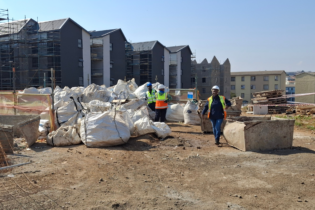
City of Johannesburg
Speaking at a media briefing on the state of Johannesburg’s infrastructure on Tuesday, the mayor said the city only has R10 billion to address a R170 billion shortfall and has to implement urgent intervention measures to address the challenges.
“In many ways, today is not dissimilar to the day when Members of parliament warned that Eskom was heading towards the metaphorical cliff in its supply of power. Four years later the lights started to go out. As you are no doubt aware, we in the City of Johannesburg now face a very similar issue,” he said.
Electricity infrastructure
According to Mashaba 27% of the country’s electricity infrastructure is past its useful lifespan.
“We have one electricity sub-station that supplies the entire Inner City of Johannesburg. It is 75 years old, 30 years past its useful lifespan. No service parts are available for this sub-station any longer, they stopped making those parts 20 years ago,” he explained.

City of Johannesburg MMC for Environment and Infrastructure Services, Nico de Jager
The bleak picture of the city’s power infrastructure was reiterated by MMC for Environment and Infrastructure Services, Nico de Jager. According to De Jager 45% of the country’s electricity infrastructure is fast approaching the end of its useful lifespan and needs to be addressed urgently.
De Jager said some of the challenges City Power is facing includes aging infrastructure, theft and vandalism, a backlog in asset renewal and a bulk tariff trajectory that is on the rise which has an adverse impact on industry and residents alike.
Water infrastructure
On the water front the city has had to deal with over 45 000 leaks in water pipes and needs R12.65 billion over the next 10 years to deal with infrastructure upgrades and renewals.
“Asset management plans dictate a renewal rate of 2% per annum; however the current expenditure pattern indicates an average renewal rate of 1.1% has been achieved with current funding allocations. This leaves a shortfall of an average of 0.9%,”De Jager explained.
In addition to aging water infrastructure the city is also managing crime with the theft of brass water meters increasing at an alarming rate. “During the 2016/17 financial year 4004 bass meters were stolen,” De Jager noted.

City of Johannesburg MMC for Transport Nonhlanhla Makhuba
Road infrastructure
Mashaba pointed out that the city’s road network is deteriorating because the R1 billion budget for the Johannesburg Roads Agency (JRA) is inadequate to maintain the roads let alone improve it.
The state of Johannesburg’s roads was presented by MMC for Transport Nonhlanhla Makhuba, who noted that there has been a 25% deterioration in the condition of the road network according to the 2017 Roads Condition Index.
“In comparison to the 2013 roads study, the current conditions indicate that very good and good surfaced roads have decreased by 52% to 45% while poor and very poor surfaced roads have increased from 27% to 32%,”she noted.
The city’s bridges have deteriorated at an alarming rate with 78.38% of bridges in a poor to very poor condition according to Makhuba. She also noted that since 2013 37 bridges have collapsed during rainy seasons.
The total investment needed to restore the city’s road infrastructure amounts to R81.5 billion over the next 10 years.
Turning things around
“It is going to take a mammoth effort and the very best leadership in our city to turn this situation around,” Mashaba explained.
The mayor outlined several urgent intervention measures to address the challenges which include establishing a professional public service, getting the municipal courts functioning again, intensifying the fight against fraud and corruption, fixing the billing system, declaring war on criminals and kick starting the city’s economic revival by turning it into a construction site.
“The job of saving our city from the imminent collapse of our infrastructure cannot happen overnight. It is a process, not an event. But is a process through which our residents need to accompany us,” he explained.









